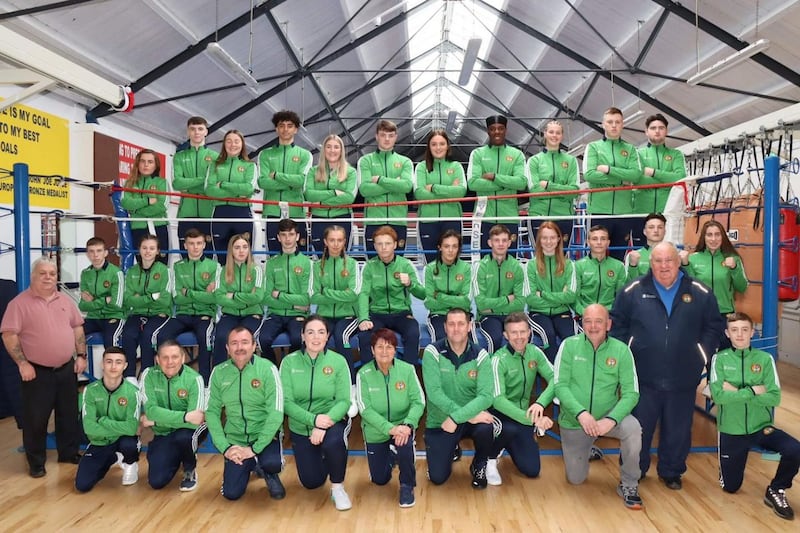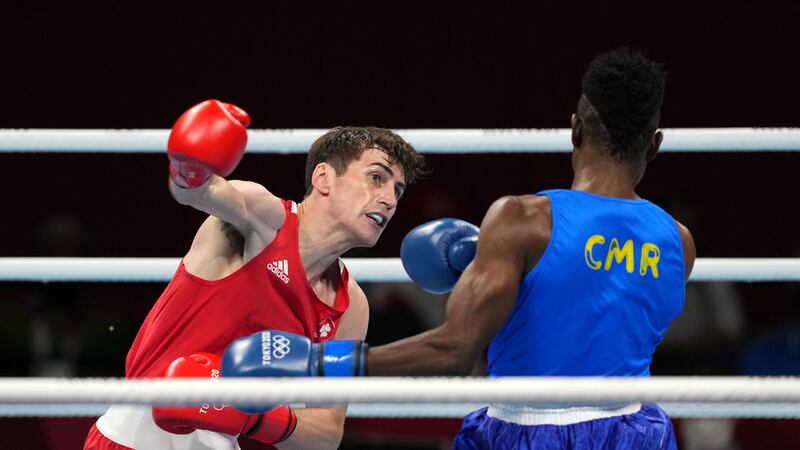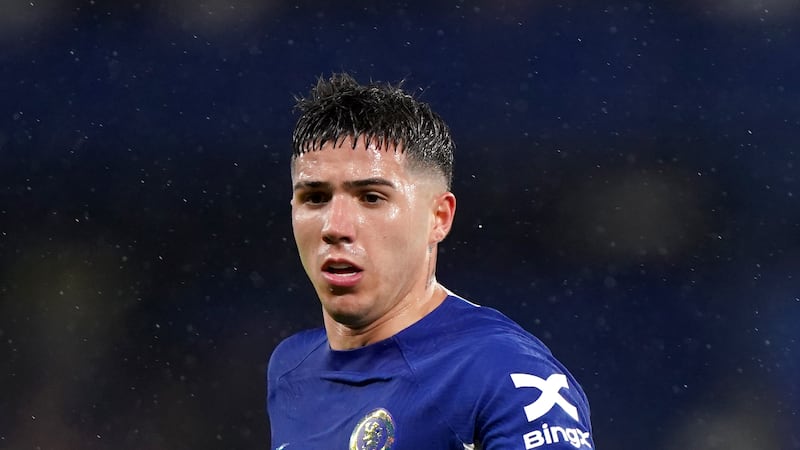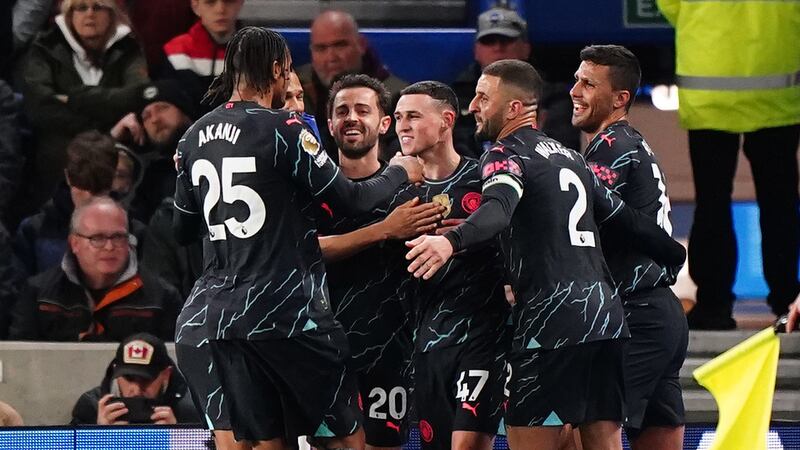EXPERIENCED coach Michael Hawkins fears there is a danger of boxers suffering serious injury as a consequence of the controversial weight class reshuffle for the Paris 2024 Olympics.
Last week the International Olympic Committee approved a new plan drawn up by the International Boxing Association (IBA) – formerly known as AIBA – which sees parity in the number of male and female boxers at the tournament for the first time.
The seven men’s weight classes are now 51kg, 57kg, 63.5kg, 71kg, 80kg, 92kg and 92kg+, with the six women’s weights 50kg, 54kg, 57kg, 60kg - at which Kellie Harrington won gold in Tokyo last summer – 66kg and 75kg.
However, while the increase in female representation has been widely welcomed, there are concerns about the gaps between weight classes in the men’s competition, with light-flyweight removed while the highly competitive welter and middleweight classes have essentially been merged into 71kg.
And Hawkins, Irish coach at the Seoul ’88 and Atlanta ’96 Games, believes a rethink is required to prevent boxers’ health being put at risk.
“What does happen, and will happen, because the boxer wants to qualify for the Olympic Games – that’s everybody’s ambition – they’re going to sacrifice a lot,” said the Holy Trinity stalwart, who feels the IBA should consider re-examining the qualification process, with a view to capping the qualification numbers – particularly at the heavier weights - and allowing some of the lighter weight classes to be reinstated.
“To be at 63.5 or 71 kilos, that’s the middle ground of the male boxing categories, and that’s over a stone in difference instead of seven pounds. You have a choice then to either get yourself down to 63.5, or bulk up to 71.
“Weight loss is lethal, it really is. That’s where the damage is done, and that’s where the serious injuries will appear. It’ll be that bad trying to make the weight that they won’t even enjoy the competition, and what should be one of the best moments of their lives.
“I’ve witnessed it at numerous tournaments, where a boxer gets in and just can’t perform. They tried their very best, but when you’re doing that against weight, it just can’t be done. It’s not fair on the boxer. No matter how much you think you can perform as you want, you can’t.
“That’s why it’s so dangerous.”
Another man unimpressed with the reshuffle is former Irish amateur star Eric Donovan, currently operating in the paid ranks and coaching Tyrone prospect Jude Gallagher.
“I think it’s a disgrace, a disaster really,” he said, “the absolute state of it now.
“It’s not good enough. I am totally in favour of equality and having women’s boxing on the same level as men’s. But I’m not in favour of taking away the men’s weight categories to compensate for the women’s. They should both have equal status.
“In some ways it’s not equal if you’re robbing Peter to pay Paul and that’s what they’re doing – they’re taking away from men’s boxing. I think it will do more damage to amateur boxing.”
The Olympic qualification process - which will run from January 1 next year to May 31, 2024 – has also changed from previous Games.
Notably, the two finalists in each IBA men’s and women’s division at next year’s men’s and women’s World Championship will automatically qualify for Paris. Each country is only allowed one entrant per weight class, therefore if two qualify then their national federation will have to nominate one of them.
In phase two of the qualification process the highest six ranked athletes in each of the men’s and women’s Olympic divisions, according to the Olympic ranking lists on December 23, will qualify for Paris.
Ranking points can be earned at global boxing tournaments to be organised by the IBA in 2023.
In the third phase, 42 quota places for men and 56 for women will be allocated. The IBA’s five continental regions will each be guaranteed a representative in each weight based on the ranking on March 31st, 2024. Host country France are also guaranteed seven quota places.
The final phase of the process will see a final 14 spots for men and 12 for women up for grabs. It is proposed that a world qualification tournament will be held in May 2024 with the two finalists in each division securing a place at the Paris Games.
**************

IRISH YOUTH TEAM JET OFF FOR EUROPEAN CHAMPIONSHIPS
A 24-STRONG Irish team is en route to the European Youth Championships in Bulgaria, which get under way in Sofia on Thursday.
Due to the impact of the Covid-19 pandemic, it will be a first major step into the international arena for several of the Irish team, but there is no doubting the quality among the ranks – with Immaculata’s Karl Reilly (44kg) and Louis Rooney of Star (46kg) heading up the Ulster contingent.
Ratoath’s Gavin Ryan is considered one to watch, as are joint team captain Bobbi Flood, six-time Irish champion Patsy Joyce and Jim Donovan – cousin of former Irish elite champion and current pro Paddy.
Among the girls’ ranks, meanwhile, joint team captain Yasmin Meredeth won European schoolgirl gold four years ago and may well have built on that internationally had it not been for the pandemic, while light-fly Georgia McGovern has a European schoolgirl silver to her name.
Saints coach Liam Cunningham, a 1998 Commonwealth Games silver medallist, is part of the coaching team alongside Jim O’Neill, James Doyle, Aoife Hennigan and Gerard McDaid, with Anna Moore team manager and Martin O’Neill Ireland’s R&J.
The squad has just concluded a week-long training camp at the Clann Naofa club and, having taken to the skies, Cunningham insists they are ready for action.
“We’re just back from a great camp down in Dundalk, they had a lot of tough sessions and by the end of the week you could really see the benefit,” said Cunningham.
“The decision in relation to sending a team to the championships was taken late enough, so we’re probably playing catch-up a wee bit. We managed to get Wales across for some test matches at the stadium, and then we got every one of them a test match a few weeks ago.
“We’ve done the best we could, the kids have really given it everything and shown what they’re made of; they’ve come on leaps and bounds.
“I’m really excited now, we’re looking forward to getting over there and and seeing how they perform.”
IRELAND SQUAD
48kg: G McGovern (Setanta); 48kg: P Joyce (Olympic); 50kg: K O’Keefe (Kanturk); 51kg: A McKenna (Holy Family, Drogheda); 52kg: E Lambe (Setanta); 54kg: S Donoghue (Templemore); 54kg: G Ryan (Ratoath); 57kg: Y Meredith (Corinthians - team captain); 57kg: J Donoghue (St Michael’s, Athy); 60kg: J Nevin (Olympic); 63kg: W McDonagh (Neilstown); 63.5kg: T McDonnell (Docklands); 66kg: G Mongan (Whitechurch); 67kg: J Donovan (OLOL); 70kg: L Moran (St Anne’s); 71kg: B Flood (Cabra - team captain); 75kg: E Keating (Paulstown); 75kg: J Olaniyan (Jobstown); 80kg: R Murphy (Neilstown); 81kg: D Tinnelly (Clann Naofa); 81+kg: C Darcy (Tobar Pheadair); 86kg: N Ojo (Esker); 92kg: DJ McDonagh (Olympic); 92+kg: B Cawley (St David’s, Naas)








